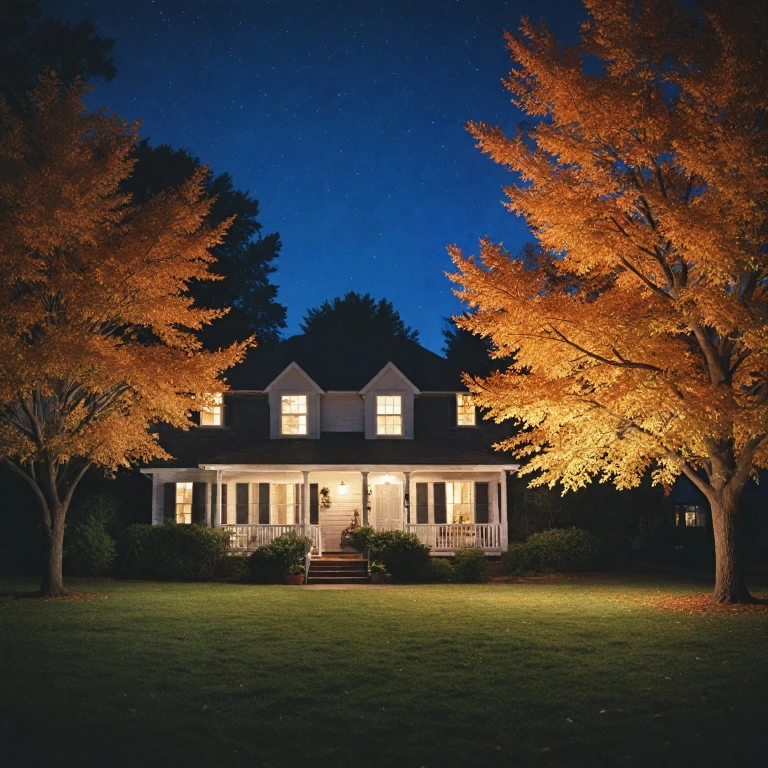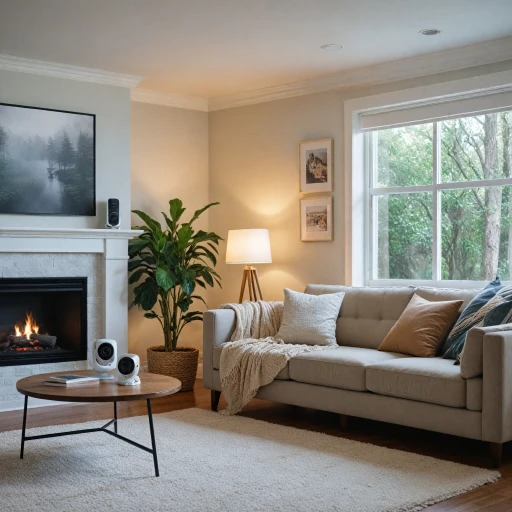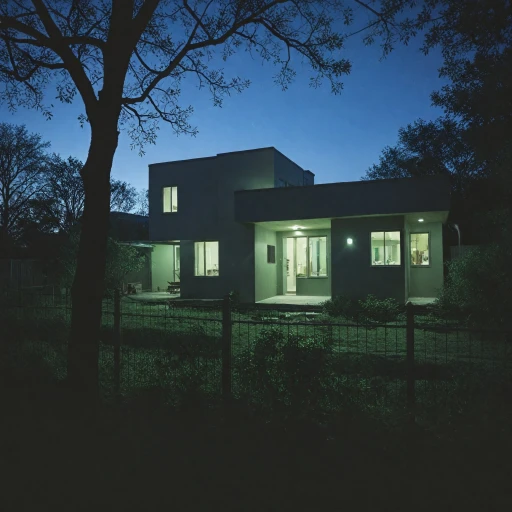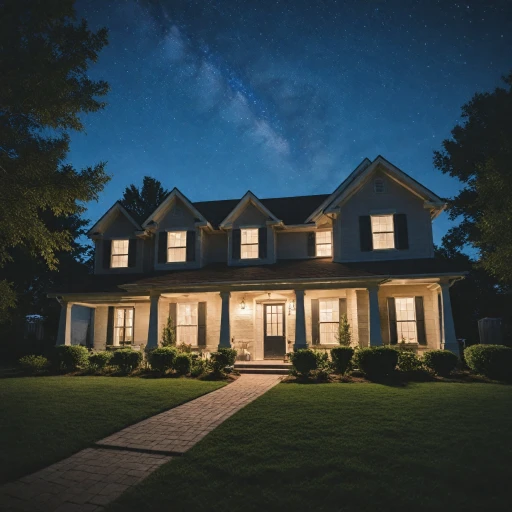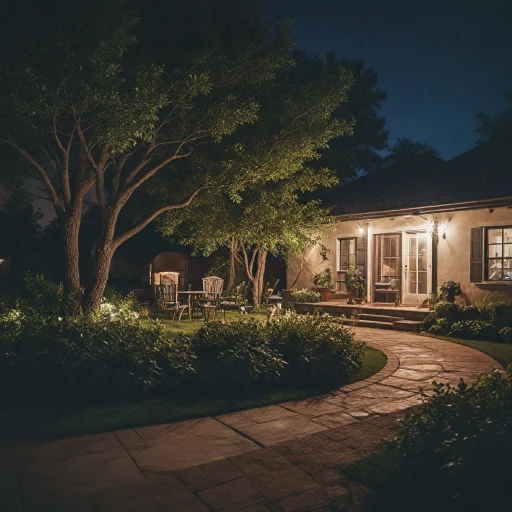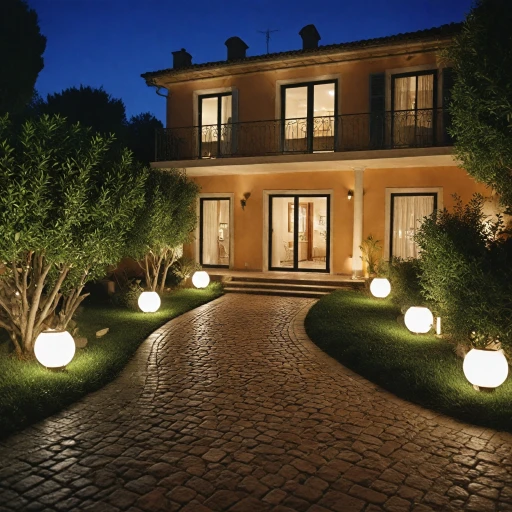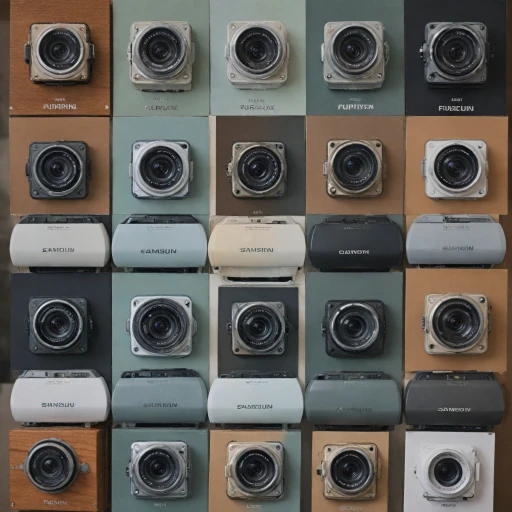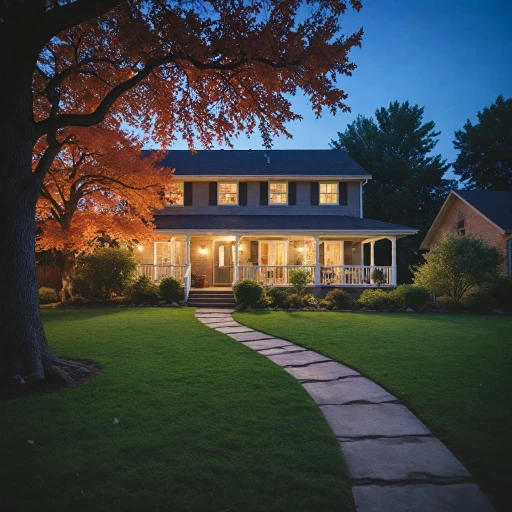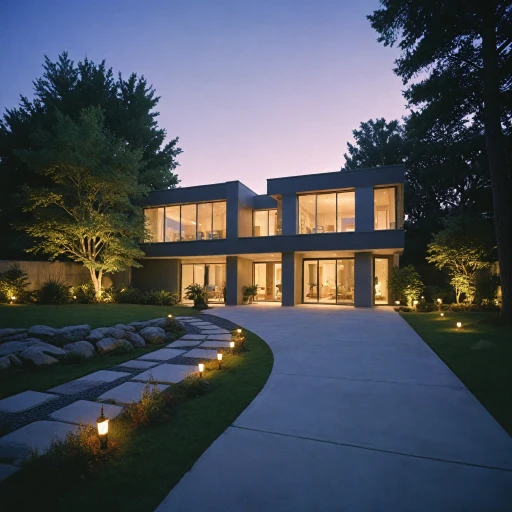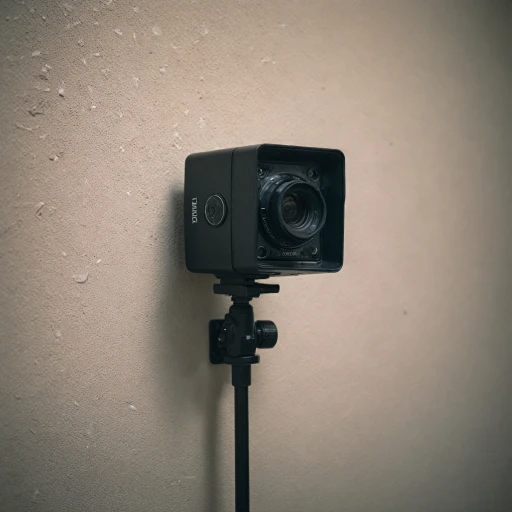Understanding IR Illuminators
Decoding the Role of Infrared Illuminators in Night Vision
To effectively enhance night vision for home security cameras, the integration of an infrared illuminator is a pivotal step. This piece of technology serves as a guiding light, quite literally, for cameras that need to operate in low-light or completely dark environments. Understanding how an illuminator works starts with the basic concept of infrared light. Infrared light, invisible to the human eye, provides a vital means for security cameras to "see" when the sun sets. Standard security cameras may struggle in darkness, but with the addition of an infrared illuminator, everything changes. The illuminator emits infrared light, which is reflected off objects and captured by the camera’s sensor, allowing it to capture clear images even in the pitch black. For those considering upgrading their security setup, exploring the use of infrared illuminators is worthwhile. Not only do these devices operate efficiently in darkness, but they also optimize the security setup's range and effectiveness. The continued advancement of these technologies presents a plethora of product options, from the basic to the high-end, ensuring that there are suitable solutions to match varying needs and budgets. The variations in illuminators range from the standard LED type to more advanced laser options. Each has its own pros and cons depending on the required application. You can find security cameras that come equipped with built-in infrared illuminators, while others can be enhanced with external options. For more ways to enhance home security, consider exploring this article on motion sensor CCTV cameras which provides additional insights into effective security measures.Benefits of Using IR Illuminators
Advantages of Incorporating Infrared Illuminators in Home Security Systems
Integrating infrared illuminators into your home security system can significantly fortify your surveillance setup. These devices enhance the night vision capabilities of security cameras by emitting powerful infrared light, which is invisible to the human eye, ensuring continuous monitoring even in complete darkness. Utilizing an infrared illuminator increases the clarity of the captured images during nighttime by reducing shadows and dark spots. A good illuminator can transform a murky scene into a clear view, allowing greater detail to be discerned. This enhanced visibility grants homeowners peace of mind, knowing their property is effectively monitored around the clock. When shopping for an illuminator, consider the different product options available on the market, including LED and laser variants. From long-range laser illuminators to wide-angle LED options, each provides specific benefits tailored to varying security needs. For instance, laser illuminators are ideal for focusing light over long distances, while LED models are often preferred for broader coverage closer to the camera. Moreover, certain infrared illuminators can seamlessly integrate with your existing security camera setup. This adaptability allows most homeowners to upgrade their systems without significant investment. Factors like power adapters, dual-beam functionalities, and portability make these devices a wise choice for those looking to enhance night surveillance. If you're interested in more ways to bolster your home security, consider reading about Motion Sensor CCTV Cameras for enhanced efficiency and protection.Types of IR Illuminators
Exploring Different IR Illuminator Designs
In the world of home security, the array of infrared illuminators available can be overwhelming. Understanding these designs can help you choose the right illuminator for optimal night vision in your security setup. Let’s delve into the most common types of illuminators designed to enhance your security camera’s performance.- LED IR Illuminators: These are among the most popular options, favored for their efficiency and affordability. They offer a decent range and brightness suitable for most home environments. An LED illuminator can seamlessly enhance your security cameras' visibility.
- Laser Illuminators: Offering a more focused infrared light beam, laser illuminators are suitable for specialized applications where long-range visibility is a priority. However, they come at a higher price point compared to LEDs.
- Hybrid Illuminators: Some products combine LED and laser technologies, giving you the dual benefit of a wide-angle view and long-range coverage. This duality makes them a versatile choice for homeowners looking to maximize their security system's capabilities.
- White Light Illuminators: While not true IR illuminators, these can be integrated into your system for visible light applications when you need to deter intruders visibly. They can act as a tactical addition to cameras needing extra lighting.
Choosing the Right IR Illuminator for Your Home
Finding the Perfect Fit for Your Security Needs
Choosing the right IR illuminator for your home security cameras is crucial to enhancing night vision capabilities. With a wide array of products available, it’s essential to consider various factors to ensure you select the best option for your specific needs.
- Range and Coverage: Determine the range you need the infrared light to cover. A long-range illuminator might be necessary for larger properties, while a wide-angle option could be suitable for broader areas.
- Type of Illuminator: Consider whether a laser illuminator or LED-based product is more appropriate. Laser illuminators often provide a more focused beam, while LEDs might offer wider coverage.
- Compatibility: Ensure the illuminator is compatible with your existing security cameras. Some models might require a specific power adapter or have unique mounting requirements.
- Price and Budget: Prices can vary significantly based on the features and specifications. Set a budget that balances cost with the necessary features.
- Environmental Conditions: Consider the weather conditions in your area. Some infrared illuminators are designed to withstand harsh weather, ensuring durability and longevity.
- Additional Features: Look for features such as dual beam capabilities or the inclusion of a green laser for enhanced vision.
By carefully evaluating these factors, you can choose an IR illuminator that not only fits your budget but also meets your security requirements effectively. Whether you're looking for a high-power option or a more tactical, surefire solution, the right choice will significantly enhance your security camera’s night vision capabilities.
Installation Tips for IR Illuminators
Setting Up Your IR Illuminator for Optimal Performance
When installing an IR illuminator to enhance the night vision capabilities of your home security cameras, attention to detail is crucial to ensure the best performance. Whether your choice is an infrared illuminator, laser illuminator, or a range illuminator, proper setup can significantly impact the product's effectiveness in providing security.
Firstly, consider the placement of your IR illuminator. For optimal coverage, position it to minimize obstructions that might interfere with the light's range. This could mean elevating the illuminator or adjusting its angle to cover the desired area effectively. The wide angle and range of the IR light can cover large zones, making it essential to adjust it to target key areas.
Another important aspect is avoiding direct light exposure to the camera lens. Excessive infrared light exposure can cause glare in the camera view, reducing the clarity of the security footage. It might be helpful to test different positions during setup to find the sweet spot that minimizes glare while maximizing coverage.
Don't overlook power requirements. Many IR illuminators require significant power to operate, especially high-power and dual-beam models. Make sure your chosen location has access to a power source or can accommodate a power adapter if necessary. This might mean planning for electrical wiring or using a battery-operated option if accessibility is an issue.
When setting up, also consider how the product will perform under various weather conditions, such as rain or snow, which might affect its functionality. Check the specifications on your product for weatherproof ratings or additional protective features if you're in a region with harsh weather.
Lastly, for those using advanced options like laser illuminators or infrared lasers, further adjustments might be necessary. These may require calibration to ensure that the lasers are correctly aligned with the area under surveillance without posing any risk to the human eye or causing unwanted reflections.
Common Challenges and Solutions
Overcoming Typical Obstacles in IR Illuminator Setup
Setting up infrared (IR) illuminators for home security cameras can greatly enhance night vision capabilities, but it is not without its challenges. Below are common hurdles and solutions to ensure your night vision system works optimally.
Interference with Existing Lights
The presence of ambient white light or other sources can interfere with the efficiency of infrared illuminators. To ensure superior night vision:
- Position the IR illuminator away from any competing lights, allowing your security camera to fully utilize the infrared light.
- Consider using a laser illuminator, which offers a focused beam for precision lighting in areas susceptible to light pollution.
Limited Range and Coverage
If the range of your infrared illuminator is insufficient, you may find products with extended capabilities:
- Opt for a high power infrared illuminator or long range options for expansive outdoor areas.
- Dual beam models offer both concentrated and wide angle lighting, enhancing coverage areas.
Camera Compatibility
Before purchasing an IR illuminator, ensure it is compatible with your security camera's sensitivity to infrared light. Cameras not receptive to infrared frequencies won't benefit from the added illumination. Consult the camera's specifications, or consider models with built-in IR sensitivity for better integration.
Weather and Environmental Factors
Outdoor environments present challenges such as changing weather conditions, which can impact the illuminator's efficiency.
- Invest in weatherproof models to withstand rain and extreme temperatures.
- Regular maintenance, such as cleaning the lens of the illuminators, can help retain optical clarity.
By understanding these challenges and incorporating suitable solutions, you can successfully enhance your home security system’s night vision with infrared illuminators.
